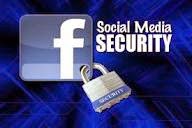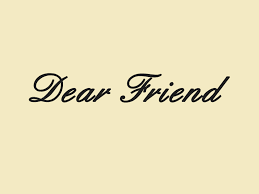Tips for Social Media Networking Security
A lot of us are on social media...for us in Naija it is mostly Facebook, Twitter and Instagram (there are so many other social media networks that it sometimes feels like we are limiting ourselves...but then again, what is the point of being on every social media space there is *eye roll*)
Social media is fun...but if not used right, we may end up putting ourselves at risk...risk of hackers, virus writers (why a person will dedicate his life to writing viruses is something I just can't comprehend...mchew), identity thieves, criminals, crazy people, stalkers etc. So here are a few tips to help you improve your social media security (I will probably do another post on social media etiquette because some people can be soooooo ridiculously rude and annoying on social media).
PS: some of the tips are from personal experience while others are from different research source.
1. Do not be quick to trust people who contact you via social media. ALWAYS verify as much as you can before you proceed to more physical modes of contact. (just in case you have been chatting with a sick and demented serial killer... *fright face*)
2. This is sooo personal, but I really do not think it is safe to trust a person who uses a fake photo as their profile picture on a social media site, especially if it is the picture of notable personality
3. Most real people who want to interact with you will not immediately require you to send personal details to them, like address, phone number, current location etc. Once the conversation becomes even a little bit invasive, take caution.
4. Use caution when you click links that you receive in messages from your friends on your social website. They could be spam. Instead, send a message to confirm that the link contains details that you are interested in.
5. Know what you have posted about yourself. A common way that hackers break into financial or other accounts is by clicking the “Forgot your password?” link on the account login page. To break into your account, they search for the answers to your security questions, such as your birthday, hometown, high school class, father’s middle name, on your social networking site. If the site allows, make up your own password questions, and don’t draw them from material anyone could find with a quick search.
6. Make your passwords as random as possible, using a mix of capital letters, small letters, numbers and punctuation marks. Also do NOT use one password for all your social media accounts...Trust me, I have experimented with this one and had access to sooo much information of the person I experimented with. Have 3 to 5 password variations which you alternate between accounts if having one password per account is too much mental burden for you.
7. To avoid giving away e-mail addresses of your friends, do not allow social networking services to scan your e-mail address book. When you join a new social network, you might receive an offer to enter your e-mail address and password to find out if your contacts are on the network. The site might use this information to send e-mail messages to everyone in your contact list or even everyone you’ve ever sent an e-mail message to with that e-mail address. Social networking sites should explain that they’re going to do this, but some do not.
8. Be selective about who you accept as a friend on a social network. Identity thieves might create fake profiles in order to get information from you. It is not every friend request that you should accept, neither is it every follow back request. Just as you have the right to choose your friends in real life, you certainly have that same right on social media...and you should exercise it.
9. Choose your social network carefully. Evaluate the site that you plan to use and make sure you understand the privacy policy. Find out if the site monitors content that people post. You will be providing personal information to this website, so understand and consider before you use.
10. Assume that everything you put on a social networking site is permanent. Even if you can delete your account, anyone on the Internet can easily print photos or text or save images and videos to a computer. For example, on Linda Ikeji's blog, we see severally where she says a celebrity posted something and deleted less than a minute later but she was quick enough to get a screen grab of it (but come to think of it though, Linda really does have her eyes on several media spaces at the same time...I wonder how she pulls it off *WomanCrushMoment*)
11. Customize the privacy settings on your account. you are NOT under duress to accept the default settings so go through the options and pick what suites you.
12. Avoid TMI (Too Much Information). Such things as your current location, home address, last sexual encounter *eye roll* and such other personal information should not be easily accessible online, let alone, on social media.
13. Think and double check before you post updates, accept invitations, accept terms and conditions etc
14. Be mindful of phishing sites (please google the word to understand it better cause I might have to write an entirely different post to explain it)
15. Educate your friends, family and kids about Social Media Security. If the people in your inner circle are not safe, chances are that you may get roped into an unsafe situation without realizing. However, if everyone is, you will certainly be too.
Feel free to share your own tips
Kisses...
xxx
Tobe.




Great write up.
ReplyDeletePermission to share